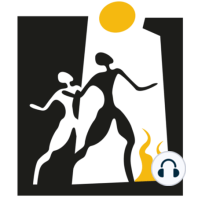101 min listen
Gregg Henriques - Revolutionizing Psychology
FromAnagoge Podcast
ratings:
Length:
123 minutes
Released:
Jan 10, 2022
Format:
Podcast episode
Description
In this episode, I talk with Gregg Henriques about the problem of psychology and the solution he has been working on for 20 years. We covered the bulk of his theory in the first half of the episode, and in the second half, we do a deep dive into cognitive behavioral therapy, including Gregg's experience with it and some controversies in one of the major studies published about CBT. Gregg Henriques is a Full Professor and a core faculty member in James Madison University's Combined-Integrated Clinical and School Psychology Doctoral Program. He teaches courses on integrative/unified psychotherapy, personality, social, and cognitive psychology. He developed the Unified Theory Of Knowledge (UTOK), which consists of eight key ideas that Henriques results in a much more unified vision of science, psychology and philosophy. 0:00:09 Introduction 0:05:16 The enlightenment gap 0:12:12 The problem of psychology 0:21:50 Why evolutionary psychology can't be the answer 0:31:31 The tree of knowledge 0:38:25 Emergence and complexity dynamics 0:45:13 Comparing it to memetics 0:49:24 Justification hypothesis 0:52:24 Dan Sperber and Hugo Mercier 1:00:57 The influence matrix 1:09:45 Children social intellgience 1:11:42 Variation of the influence matrix 1:18:03 Connection with Haidt 1:20:13 Empirical backing 1:26:03 Cognitive Behavioral Therapy 1:46:19 Cognitive vs Non-Cognitive Therapy 1:55:08 Rigidity vs pseudoscience in therapy 2:01:49 Conclusion
Released:
Jan 10, 2022
Format:
Podcast episode
Titles in the series (14)
Peter Sjöstedt-H - Morality, Psychedelics & Panpsychism: For our first episode, the guest was Peter Sjöstedt-H, a philosopher of mind with a special interest in metaphysics and meta-ethics based on Whitehead and Nietzsche. He is currently doing a Ph.D. on the topic of panpsychism. In this podcast, we... by Anagoge Podcast
